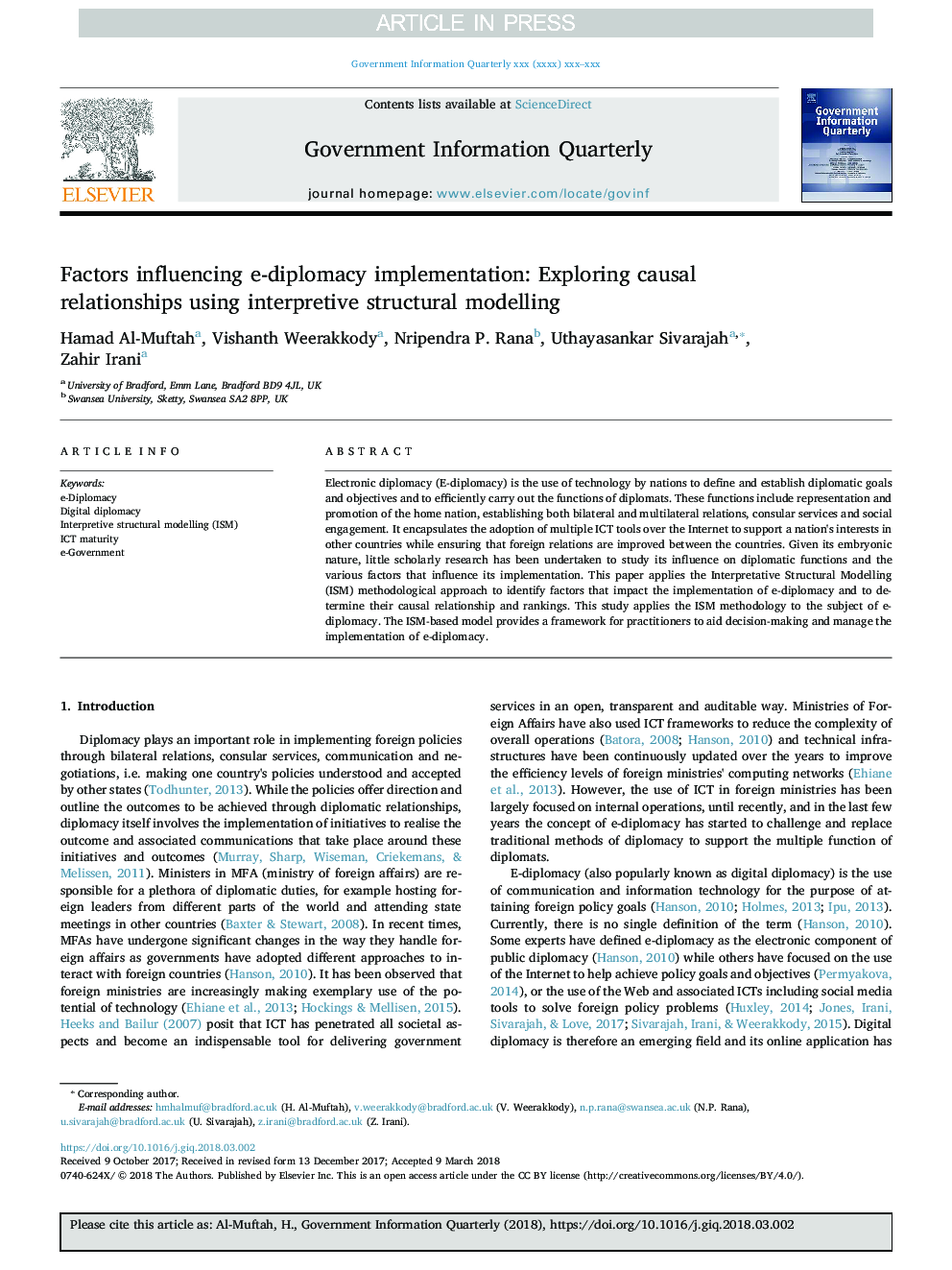| Article ID | Journal | Published Year | Pages | File Type |
|---|---|---|---|---|
| 7428478 | Government Information Quarterly | 2018 | 13 Pages |
Abstract
Electronic diplomacy (E-diplomacy) is the use of technology by nations to define and establish diplomatic goals and objectives and to efficiently carry out the functions of diplomats. These functions include representation and promotion of the home nation, establishing both bilateral and multilateral relations, consular services and social engagement. It encapsulates the adoption of multiple ICT tools over the Internet to support a nation's interests in other countries while ensuring that foreign relations are improved between the countries. Given its embryonic nature, little scholarly research has been undertaken to study its influence on diplomatic functions and the various factors that influence its implementation. This paper applies the Interpretative Structural Modelling (ISM) methodological approach to identify factors that impact the implementation of e-diplomacy and to determine their causal relationship and rankings. This study applies the ISM methodology to the subject of e-diplomacy. The ISM-based model provides a framework for practitioners to aid decision-making and manage the implementation of e-diplomacy.
Keywords
Related Topics
Social Sciences and Humanities
Business, Management and Accounting
Business, Management and Accounting (General)
Authors
Hamad Al-Muftah, Vishanth Weerakkody, Nripendra P. Rana, Uthayasankar Sivarajah, Zahir Irani,
